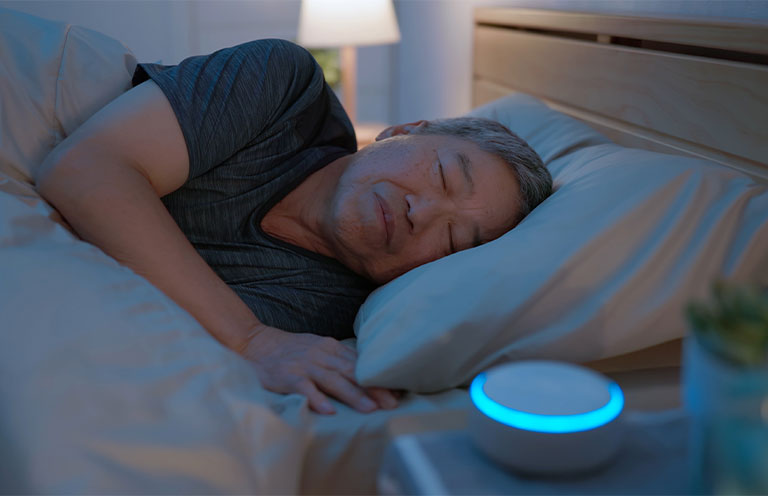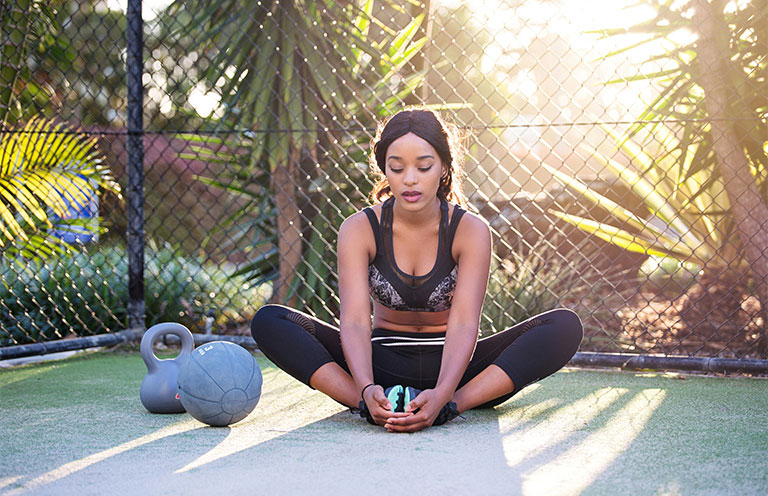9 Ways to Improve Your Sleep Hygiene — and Your Health
Follow these simple, expert-backed strategies to transform your sleep routine for a healthier, happier you


Tossing and turning at night? Struggling to get those elusive seven hours of shut-eye? If restless nights are leaving you feeling exhausted and irritable, it may be time to give your sleep hygiene a much-needed reboot.
Simply put, sleep hygiene is all about the habits and practices that help you fall asleep faster and enjoy better quality rest. While stress, illness, jet lag, and medications can affect sleep, regular sleep struggles may stem from bad habits.
The good news? By making lifestyle changes that improve your sleep hygiene, you can reduce or eliminate sleep problems for a truly good night’s sleep.

The importance of quality sleep
Getting enough sleep isn't just about feeling refreshed when you awaken. It's a crucial component of your overall health.
“Sleep is essential for your overall health and well-being and is just as important as diet and exercise,” says Dr. Fariha Abbasi-Feinberg, a sleep specialist and spokesperson for the American Academy of Sleep Medicine (AASM). “When individuals don't get enough sleep, they're at an increased risk of obesity, diabetes, high blood pressure, heart disease, and depression.”
How much sleep do you need? The Mayo Clinic recommends seven to eight hours of sleep for most people, noting that the quality of the sleep is just as valuable as the quantity. Good sleep hygiene can help with both.

Expert tips to better sleep
Ready to reboot your sleep habits? Dr. Abbasi-Feinberg offers simple, actionable advice—most of which you can start putting into practice right away.
Create a sleep-friendly environment
Transform your bedroom into a sleep sanctuary. “Keep your bedroom cool, dark, and quiet,” says Dr. Abbasi-Feinberg. “A good way to remember this is to think of your bedroom as a cave.” Some ways to achieve this include using blackout curtains to block external light, turning on a fan to keep you cool, using a white-noise machine to mask disruptive sounds, and investing in a quality mattress and comfortable bedding.
Establish a consistent sleep schedule
Dr. Abbasi-Feinberg suggests going to bed at the same time each night—even on weekends—as it keeps you body’s natural clock in sync. To get your sleep/wake cycle back on track, gradually adjust your bedtime (or wake time) to a more consistent schedule. For example, move your bedtime earlier by 15-minute increments each night—or set your alarm on weekends the same time you wake up on weekdays—until you reach your goal. Dr. Abbasi-Feinberg recommends using the AASM Bedtime Calculator to help determine your ideal bedtime.
Develop a relaxing bedtime routine
Establish a relaxing nighttime routine that helps you unwind and prepare your mind and body for bedtime, Dr. Abbasi-Feinberg says. This helps cue the body that it’s time to wind down. For some people, this could mean taking a warm bath, meditating, or practicing a gentle yoga routine. For others, this could include journaling, reading a book, or listening to relaxing music. Find what works best for you.
Limit electronics before bed
“Disconnect from electronics at least 30 minutes to an hour before bedtime,” Dr. Abbasi-Feinberg says. This includes cell phones, laptops, tablets, and TVs. Research has shown that the blue light emitted from these devices can disrupt the production of melatonin, the body’s naturally occurring sleep hormone.

Exercise regularly
There’s a positive connection between exercise and sleep that you can—and should—tap. “Regular exercise improves your sleep, and better sleep boosts your energy for workouts,” Dr. Abbasi-Feinberg says. Just be sure to finish those workouts one to two hours before bedtime to avoid disrupting sleep.
Manage your diet
Avoid large meals, caffeine, and alcohol close to bedtime.
Use your bed wisely
Use your bedroom exclusively for intimacy and sleep.
Handle sleeplessness appropriately
If you can't fall asleep within 20 minutes, get up and do a quiet activity until you feel sleepy.
Decrease your intake of fluids near bedtime
Otherwise, you could awaken for nighttime trips to the bathroom.
. . . . .
By adopting these expert-backed strategies, you’ll improve your sleep hygiene and enjoy better sleep quality. “Sufficient sleep supports both your mental and physical health,” says Dr. Abbasi-Feinberg, “helping you feel healthier, happier, and smarter.”
